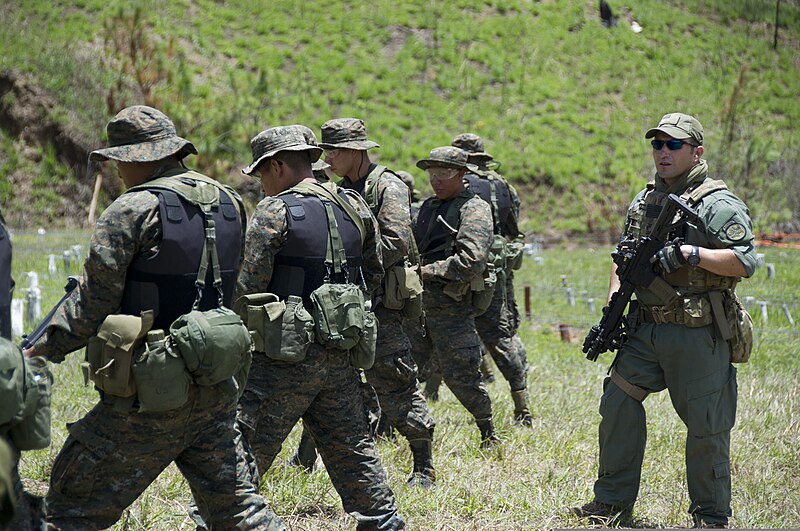- 14 3402-5578
- Rua Hygino Muzy Filho, 737, MARÍLIA - SP
- contato@latinoobservatory.org
 Foto: Miguel Negron
Foto: Miguel Negron
The Texas Military Department's construction of a towering "Forward Operating Base" on the outskirts of Eagle Pass to house up to 1,800 National Guard members marks a new chapter in the state's controversial anti-immigrant program, known as Operation Lone Star. According to HumanRights Watch, this project, part of a multibillion-dollar program, has been widely criticized for its environmental and social consequences.
Satellite imagery reveals massive deforestation of the area, while recent video shows intense construction activity at the site. The base is estimated to cost Texas taxpayers as much as $400 million by 2026, with plans to expand to accommodate up to 2,300 troops, according to the same publication. However, this militarization of the border is not without controversy.
Despite Governor Greg Abbott's claims that Operation Lone Star aims to combat cartel activity and reduce unauthorized migration and drug smuggling, there is no evidence that it has significantly impacted these issues. By contrast, the program has been linked to incidents that have resulted in injuries and deaths, including high-speed vehicle chases that Human Rights Watch investigated.
In addition, Operation Lone Star has been criticized for human rights violations, including restrictions on freedom of expression and association of groups that support migrants. Eagle Pass residents express growing dissatisfaction with the program, especially after tragic incidents such as drownings in the Rio Grande.
The construction of the military base has also sparked criticism within the community, with local leaders arguing that resources could be better spent on investments in community education and health, rather than a militarized approach to dealing with migration issues.
In short, rather than continuing to invest significant resources in the militarization of borders, many advocate for the need for a more humanitarian and community-centered approach to dealing with migration issues, one that respects human rights and promotes the development of resilient border communities.











